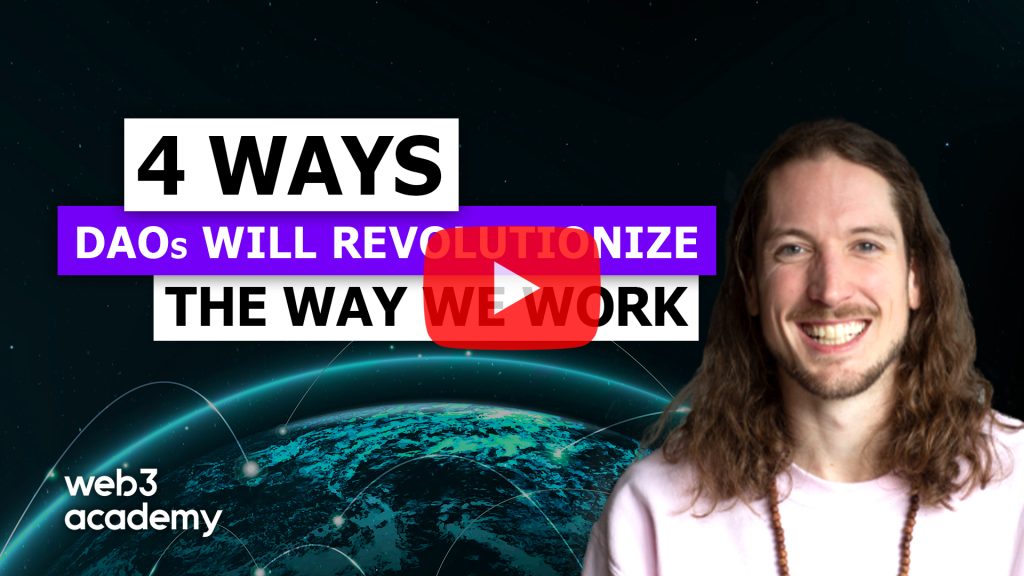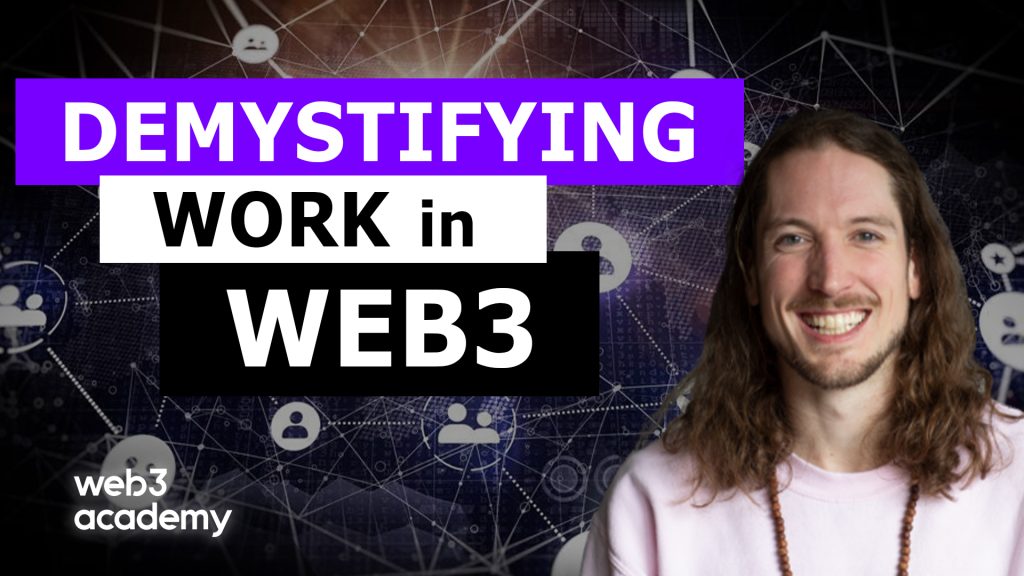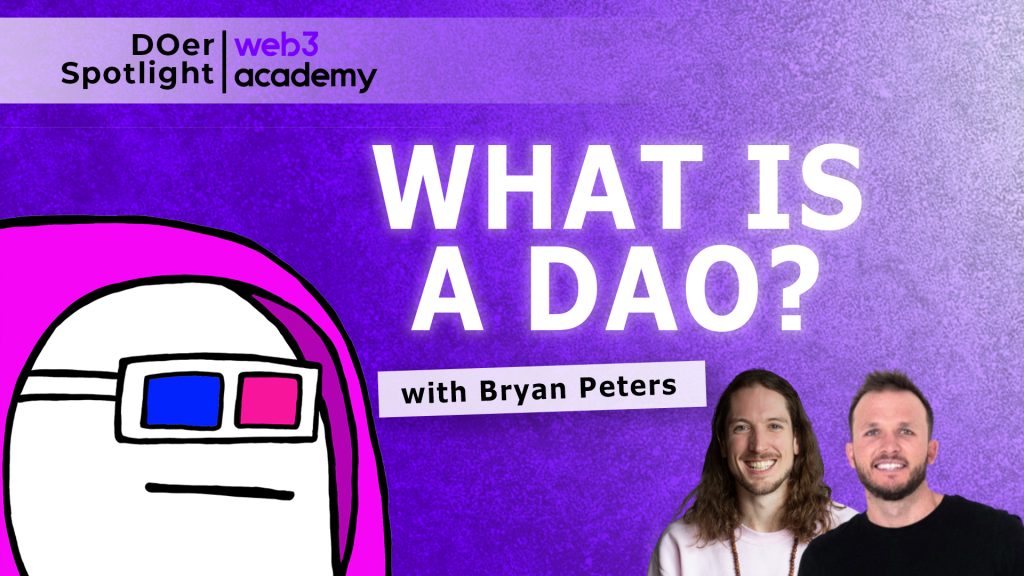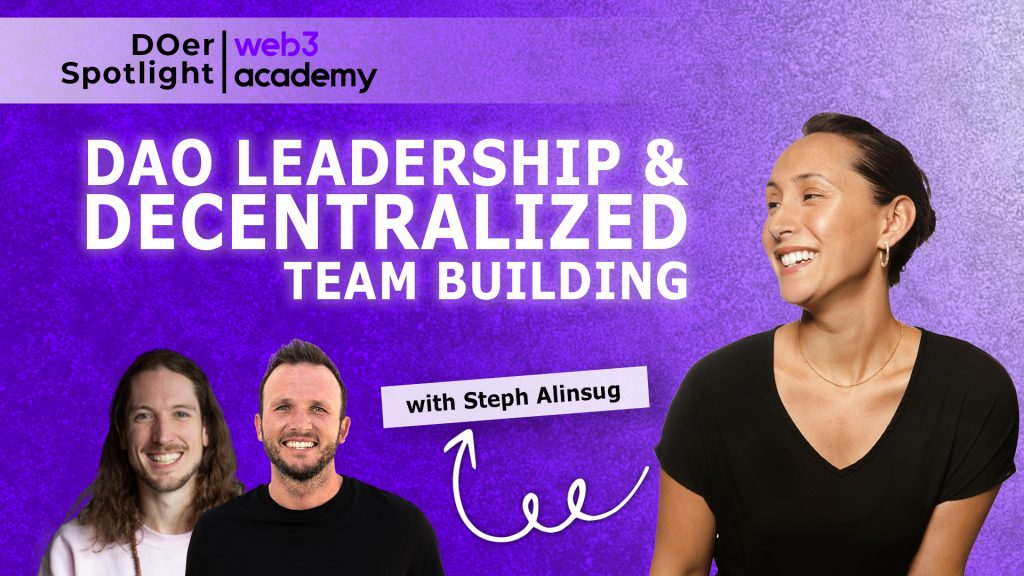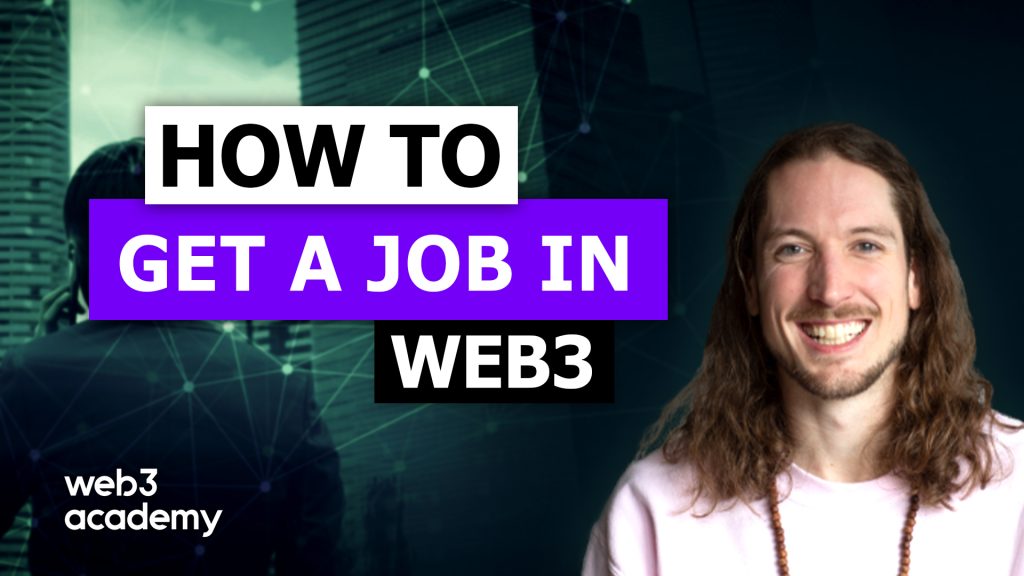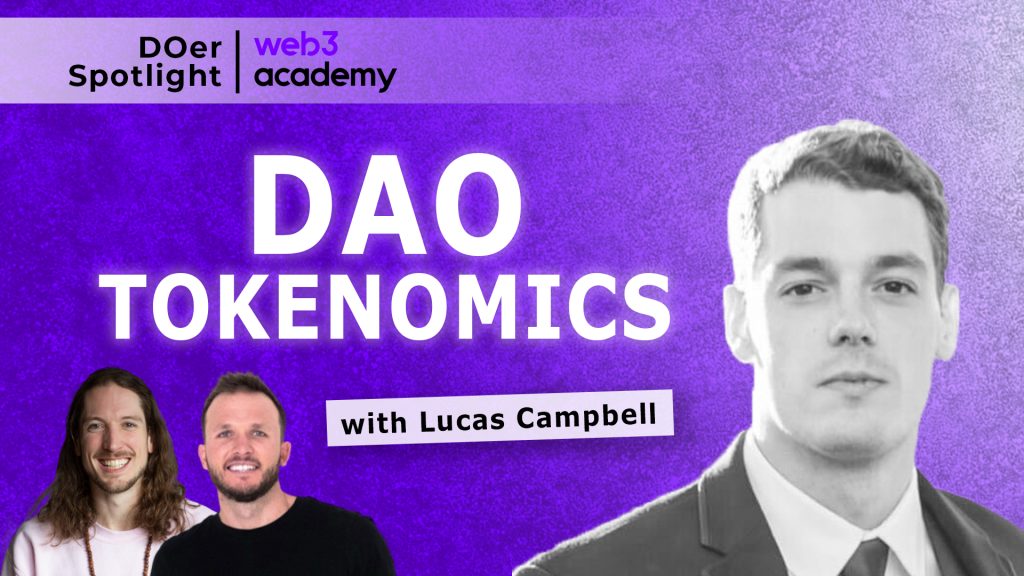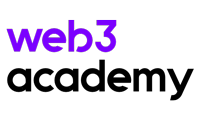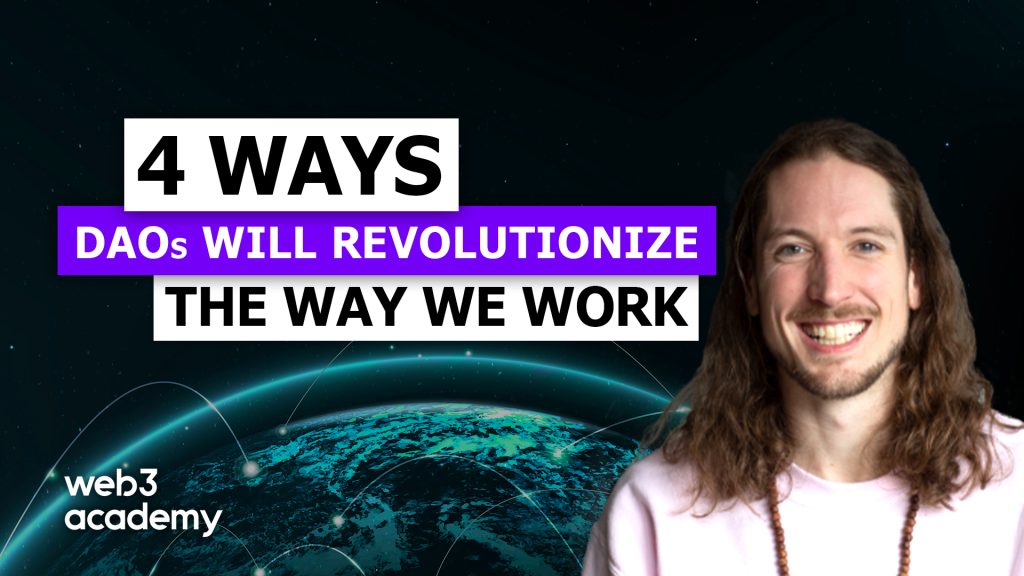
4 Ways DAOs Will Revolutionize the Way We Work
GM DOers!
Working in a traditional office setting has been the main (and sometimes only) option for most people worldwide. 👨💼
But thanks to technological advancements and efforts to cope with the Covid-19 pandemic, we’ve seen how flexible our work lives can be. 🧑💻
No more traffic-filled commutes. No more office politics. No more Sunday night blues.
Living the dream, right? Not quite. 🤔
The transition back to standard working processes is already underway. A Microsoft report found that, in the near future, 50% of companies will require workers to be back in the office full-time. On the other hand, 52% of workers plan to switch to flexible (full-time remote or hybrid) employment in 2022.
So it’s no surprise that 68% of US workers are quietly (50%) or actively (18%) disengaged at work.
The consequence? Unhappy employees and low productivity.
Instead, imagine a working environment that’s fair, flexible, and puts talent first. One where contributors are engaged, dedicated to an organization’s goal, and producing high-quality work. An environment of equality where everyone has a say in the direction of a company. 🚀
Too good to be true? Hardly.
Thanks to blockchain and cryptography, anyone can build or contribute to a Decentralized Autonomous Organization (DAO) and make it a reality.
If you’re still new to the space, check out our DAO overview with Bryan Peters so you can get up to speed.
For the rest of you, let’s dive into the four ways DAOs will revolutionize employment. 👇
Wait 🚥 Not into reading? 📖
Sit back and watch on Youtube 👀 or listen on Spotify or Apple Podcasts 🎧
1. True Ownership and Project Alignment
In most cases, traditional employment pays you a salary and—if you’re lucky—a performance bonus.
Caveats to this scenario being startups and fortune 500 executives which:
- Often requires you to work for a small (and sometimes no) salary with the promise of your shares being worth something after a funding round.
- Requires decades of business experience and some serious networking skills.
Even then, you’re often at the mercy of a board or higher-level manager. So while you get a slice of the pie, it’s monetary rather than governance ownership.
In DAOs, there isn’t a board of directors or executive team running the show. While there may be a leadership team, decision-making power is shared equally, meaning everyone’s opinion holds the same weight.
For example, in the Honey Badges DAO, members vote to choose the leadership team every three months. This process ensures that project leaders always act in members’ best interests. Additionally, leaders don’t have absolute power to make project decisions since members still need to vote.
So rather than having a few heavy-weight decision makers, an organization has many smaller ‘shareholders.’ This structure results in better contributor engagement since they have skin in the game.
And since members own part of the project, they receive a share of project revenue. No more busting your ass to climb the corporate ladder for the executive team to claim most of the rewards.
Instead of remuneration based on office politics, seniority, and power plays, it’s about how much you contribute to the DAO and its level of success.
A DAOs decentralization also means anyone can take the initiative to propose changes. This feature is valuable since members involved in the day-to-day running of the DAO have a better understanding of how to improve it.
2. Freedom to Work When, Where, How, and on What You Want
Let’s face it, most jobs these days don’t require people to share a specific location.
You can chat asynchronously or collaborate through cloud software. And those meetings that need face-to-face discussion? We’ve got Microsoft Teams, Zoom, and Discord.
We have all the necessary tools to work however suits us best, so why should we be confined to the office? Just because we’ve worked this way for decades doesn’t mean it’s the best option.
Instead, DAOs value autonomy—hence the name. Besides actual automation through smart contracts and the blockchain, each member is an autonomous contributor that decides how they work.
Autonomy doesn’t mean it’s a free-for-all, though. Members still need to meet deadlines and produce quality work. But as long as you deliver, no one cares if you did it in your pajamas, after chores, or in the shower.
DAOs also don’t expect you to dedicate your life to one project. Sure, most DAOs will have a core full-time team that pushes the project forward, but they’ll also have many one-off and part-time contributors.
These contributors will complete ad-hoc tasks (bounties) for the DAO in return for a fee—like a freelancer.
But why’s this important?
Researchers have found that intrinsic factors, such as interest in a project, are the biggest drivers of worker happiness—even beating pay levels. And since DAOs are autonomous, no one expects you to cover tasks you don’t choose.
For example, projects like Wonderverse allow DAOs and contributors to connect, whether for long-term projects or one-off tasks, like creating a gif or YouTube video.
Here’s an example from the contributor dashboard:
Not only does this allow contributors to work on projects that they’re most interested in, but it also keeps work fresh and engaging.
👉 Would you consider working in a DAO? Reply with Yes or No to this email 🔥
3. Increased Transparency, Accountability, and Fairness
It’s rare for traditional companies to practice true transparency and openness. Sure, they may say they’re transparent, but the average employee will never have access to information that isn’t necessary for their role.
But how can workers know they’re receiving fair treatment if managers don’t disclose salary, workload, and performance data? How do they know their company is acting in their best interests?
They don’t.
And that’s how we end up with black swan events like Enron in meatspace or TerraLuna in the crypto-verse.
Instead, DAOs use the blockchain, which is transparent, immutable, and accessible by anyone.
Operating as a DAO ensures:
- No corporate red tape: Have a great idea in a traditional company and need quick funding to make it happen? Good luck trying to get your request approved anytime soon. On top of this, the decision is probably up to your manager. So if you don’t get along, it won’t be approved. But in a DAO, processes are coded into the blockchain, removing the need for middle management.
- Democratic decision-making: Remember that manager that doesn’t like you? Their opinion is just one of many in a DAO. Instead of hoping they make a fair decision, you can rely on the hive mind to make the right choice for the organization.
- Transparent financials: If you have equity in a company, it’s vital to understand its performance. You’ll likely get updates, but you’re relying on the party delivering the information to be truthful. In a DAO, all this information is on-chain and immutable, meaning you can gauge a project’s health anytime. It also means you have access to remuneration data on all members in your DAO, ensuring fair distribution.
- Performance visibility: In traditional companies, it’s easy for managers to gloss over the achievements of quiet contributors. But the open, transparent nature of DAOs ensures that members notice and celebrate each others success.
4. No Experience? No Problem!
Want to apply for a traditional job? Chances are you’ll need years of experience, references, and whatever baloney a company asks for.
On top of this, hiring managers will subject you to rigid screens that don’t consider the nature of real-world skills. For example, if a job application says you need five years of experience, but you put four and a half, good luck getting to the next stage.
Will those six months make a difference? Unlikely. But it’s just the way the cookie crumbles.
And if you pass the initial screen, you’ll be lucky if you only have a few tedious interview rounds before they make their decision.
In contrast, DAOs are reinventing traditional hiring practices. Most DAOs won’t care whether you worked at Google or a supermarket before contributing. As long as you have the skills, you’ll get rewarded for them.
On top of this, you won’t have to go through lengthy hiring processes. In most cases, you can join a DAO by:
- Buying their NFT or token.
- Joining their Discord.
- Completing a task to receive a POAP, such as attending a webinar.
These low barriers make DAOs excellent for gaining practical web3 experience without taking on lengthy internships. All you need to do is show up, find a problem that needs solving, and then deliver your solution.
In saying that, not every DAO can pay for your effort.
For example, an early-stage DAO may pay you with an initially valueless native token, similar to startup equity. But if you need experience and believe in the project, contributing to these DAOs can pay off in the long run.
Who knows? Maybe your native tokens moon when the project succeeds, or they offer you a full-time gig because of your valuable contributions.
Whatever the outcome, it’s all about showing up and providing value.
Powerhouse DAOs Are Already Forming. Will You Be Part of Them?
DAOs are still an evolving concept, making now the perfect time to get in and shape the innovations of tomorrow.
And the choices are endless. We already have DAOs covering:
- Media
- Investments and venture capital
- Non-profits
- Social networks
Heck, we even have short-term DAOs, such as the UkraineDAO, which aims to support the country during the ongoing war.
For more information on DAOs and to learn about the difference DAOs out there we recommend you check out the following:
When it comes to web3 and DAOs, the world is your oyster. So get out there and start building.
Good luck, and thanks for reading, frens. ✌️
Myles O’Bery
Content creator at Web3 Academy
🚀 Action Steps For Web3 DOers 🚀
👉 Would you consider working in a DAO? Reply with Yes or No to this email 🔥
👉 Refer to our deep dive if you want to learn more about working in Web3.
👉 Read our article ‘what is a DAO and how do they work‘ if you want to learn more about DAOs

